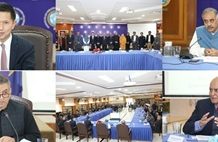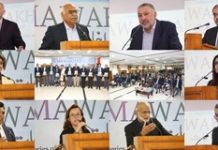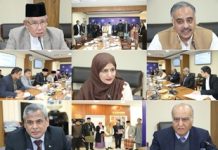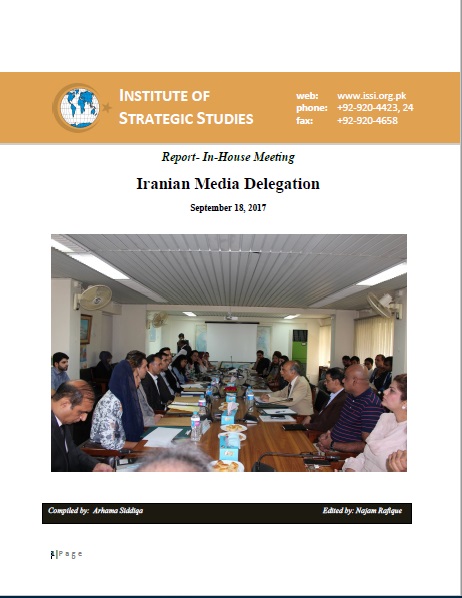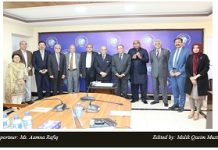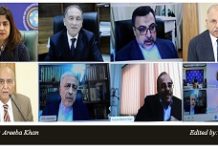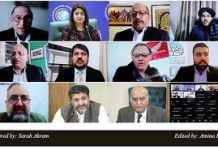A 5-member Iranian Media Delegation visited the Institute of Strategic Studies Islamabad (ISSI) for an informal discussion on recent developments affecting the Iran-Pakistan relationship.
Members of the delegation included; Mr. Morteza Naghikhani, from Kayhan International (English Daily); Mohammadreza Abesh Ahmadlou from the Iran Daily; Mr. Afshin Majlesi, Correspondent, Tehran Times; Ms. Banafsheh Emaeili Hafshejani, Correspondent, Mehr News Agency and Mr. Nader Mazouji from the Persian Daily Ettelaat.
Ambassador Khalid Mahmood, Chairman ISSI, welcomed the delegation and said that Iran and Pakistan share many commonalities in terms of language, culture, shared history and a common border. Both countries have always entertained brotherly sentiments for each other: Iran was the first to recognise Pakistan, while Pakistan was one of the first countries to recognise the Iranian government after the Islamic Revolution in 1979. Both countries also share a mutual stance on regional cooperation- Iran, Pakistan and Turkey were the founding members of the Economic Cooperation Organization (ECO). He said that as in every relationship, there are always irritants- one in this case being the situation in Afghanistan. Ambassador Mahmood spoke of how there was a time when Islamabad and Tehran had divergent policies, but the bilateral relationship is of such strength that while any two countries would have broken diplomatic relations this never happened between Pakistan and Iran. Today, both countries have a similar approach towards the situation in Afghanistan: both now believe that there is a need for a political settlement in Afghanistan. He said that there is a need to develop a regional approach which should lead to a peaceful solution in Afghanistan. The US policy towards Afghanistan is based on a achieving a military solution, and which by itself is creating a situation that is a recipe for continued conflict. The US is also now trying to give India a greater role in Afghanistan, and which is creating greater problems for Pakistan.




